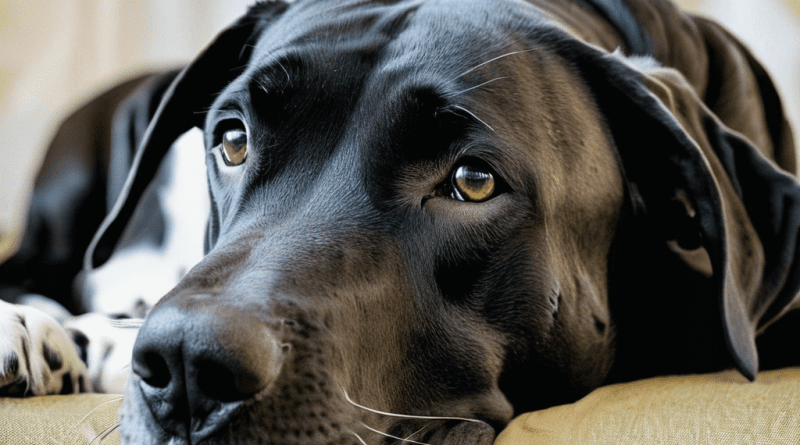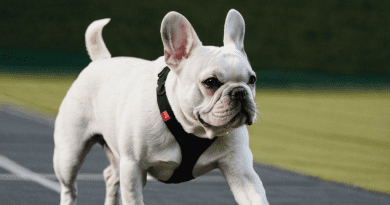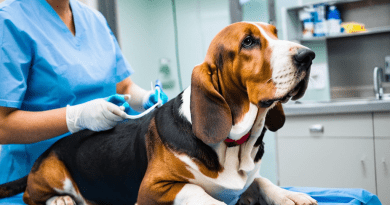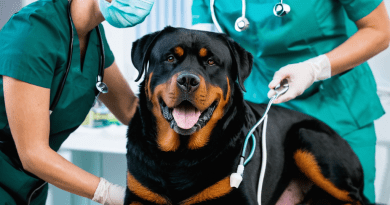Navigating the Health Concerns of Great Danes
Hello, Harry here—an enthusiastic vet student and devoted pet owner. As a passionate future veterinarian, I'm dedicated to sharing crucial pet health information to help fellow pet enthusiasts. Today, we're diving into an important discussion about the majestic breed that captures hearts with its impressive size and gentle nature: the Great Dane. These dogs aren't just known for their towering stature; they're also susceptible to some health issues that owners need to be vigilant about. Understanding and proactive care are key to ensuring that your Great Dane thrives.
Bloat: A Time-Sensitive Emergency
One of the most immediate health threats to Great Danes is bloat, or gastric dilatation-volvulus (GDV). This acute condition happens when the dog's stomach fills with gas and twists, disrupting blood flow and causing rapid shock or even death within hours if not addressed. Signs of bloat are unmistakably alarming, including restlessness, vomiting without bringing up food, and a visibly swollen abdomen. To prevent this critical situation, feeding your Great Dane multiple small meals a day is recommended. Always avoid rigorous exercise around meal times and choose foods with low grain and fat contents to avoid excessive gas build-up.
Hip Dysplasia: A Genetic Concern
Hip dysplasia, unfortunately, isn't uncommon in this breed. This congenital condition arises when the hip joint is malformed, leading to painful arthritis and inflammation over time. Watch for symptoms such as limping, difficulty rising, and a hesitation to participate in normal physical activities. Mitigating the risk of hip dysplasia starts with choosing a breeder who ensures their breeding dogs are screened for this condition. A commitment to responsible breeding practices is essential to the long-term health of Great Danes.
Heart Disease and the Great Dane
When it comes to their hearts, Great Danes can suffer from dilated cardiomyopathy (DCM), a serious condition where the heart becomes enlarged and its pumping capability is compromised, often leading to heart failure. If your Dane exhibits signs like coughing, difficulty breathing, or unusual fatigue, these might be clues pointing to DCM. To combat this, feeding a diet rich in taurine—a crucial amino acid for heart muscle health—is essential. Proper nutrition is the cornerstone of a well-functioning cardiovascular system.
Cancer Concerns: Osteosarcoma
Additionally, Great Danes are at an elevated risk of developing certain cancers, notably osteosarcoma, an aggressive bone cancer that can swiftly metastasize. Telltale symptoms include painful swelling and limping. Maintaining a healthy weight through diet and regular exercise is key to cancer prevention, but also stay vigilant for any unusual growths or changes in your dog's health. Early detection and response are paramount in managing and treating such diseases.
To wrap up, being informed about these health concerns is invaluable for anyone lucky enough to share their home with a Great Dane. A combination of preventive care, regular health check-ups, and prompt veterinary attention at the first sign of trouble is your best defense against these serious conditions. And remember, keeping your Great Dane healthy not only requires knowledge but an unwavering commitment to their well-being.
For those of you who are fellow Great Dane lovers or are simply interested in the welfare of these noble giants, tune in to our blog, PetsFI, for more insightful and engaging content. The journey with your pet is one filled with love and responsibility, and we're here to support you every step of the way. Remember, when it comes to your pet's health, an ounce of prevention is worth a pound of cure.
So, to all you Great Dane owners and admirers—may your gentle giants live long, happy, and healthy lives. Until the next post, keep your hearts open and your knowledge growing.




